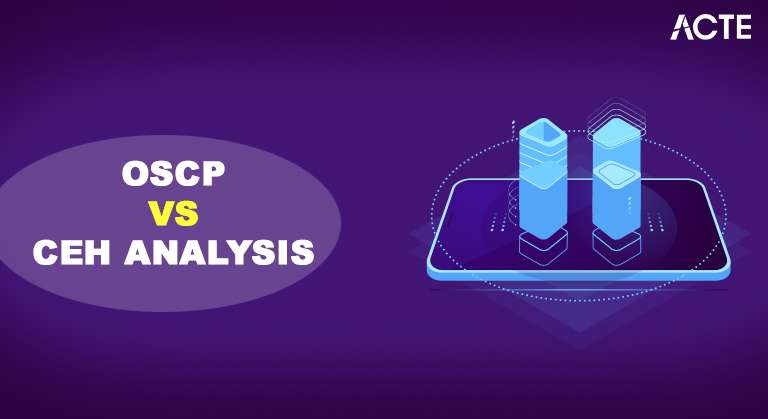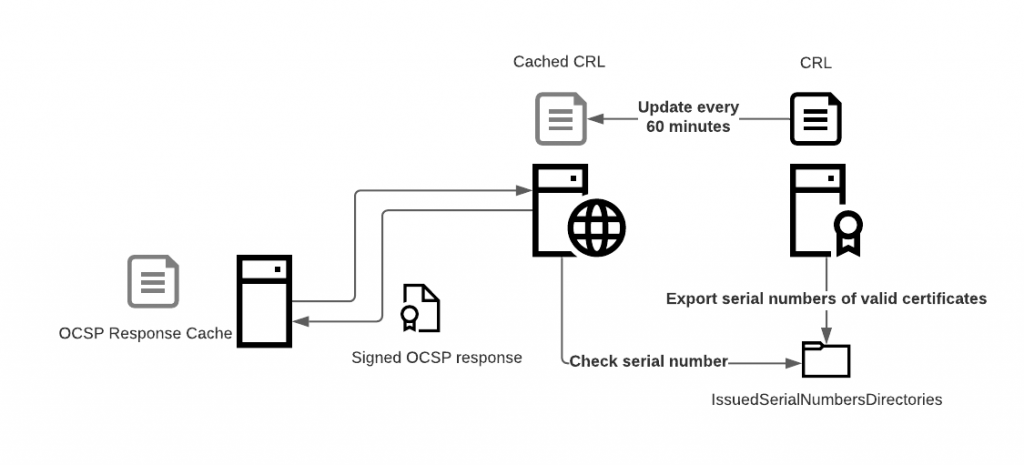
- Introduction
- What is OSCP?
- What is CEH?
- Learning Method: OSCP vs. CEH
- Industrial Value and Recognition
- Preparations for Exams: What to Expect
- Which certification is right for you?
- OSCP and CEH: Can They Complement Each Other?
- Future Trends and Career Prospects
- Conclusion
The Offensive Security Certified Professional (OSCP) and Certified Ethical Hacker (CEH) certifications are two of the most recognized credentials in the cybersecurity industry. They focus on honing the skills required to identify, exploit, and mitigate vulnerabilities within systems, networks, and applications, emphasizing a hands-on, practical approach to ethical hacking.OSCP is known for its focus on practical penetration testing skills. Cybersecurity Training Courses is designed for individuals who wish to gain a deep understanding of exploiting vulnerability assessment in real-world environments. The OSCP exam requires candidates to hack into a range of machines within a controlled environment, testing their ability to perform penetration testing techniques such as enumeration, exploitation, and privilege escalation. It places a high value on critical thinking and the ability to problem-solve under pressure.
Become an expert in cyber security. Enroll in this Cyber Security Online Training now to acquire the knowledge you need.
Introduction
In today’s rapidly evolving cyber threat landscape, the need for skilled professionals has never been more critical. With attacks’ growing sophistication and complexity, it’s crucial to have cybersecurity experts in place to defend against these intricate threats. Certifications validate expertise and open doors to roles in ethical hacking, penetration testing, and more. Among the most sought-after certifications are the Offensive Security Certified Professional (OSCP) and the Certified Ethical Hacker (CEH). While they both focus on ethical hacking, they differ significantly in approach and targeted viewers about difficulty. If you are considering either of Cybersecurity Certifications, it’s essential to understand their nuances. This blog will explore the differences between OSCP and CEH in-depth and examine their structure, relevance, and career impact to make informed decisions about which is right for your aspirations.
What is OSCP?
One of the most prestigious credentials in penetration testing offered by Offensive Security is Offensive Security Certified Professional, focusing on placing the emphasis clearly on hands-on practical skills that will be close to real-world conditions, requiring candidates to exploit vulnerabilities in systems, elevate privileges, and demonstrate comprehensive reporting. OSCP candidates are tested through a rigorous exam where they must compromise machines in a controlled environment, showcasing their ability to think critically and solve complex problems under pressure. This certification is highly regarded in the cybersecurity field for its challenging nature, making it a valuable asset for professionals seeking advanced penetration testing expertise.

- Hands-On Lab Test: The test is entirely hands-on, with a 24-hour lab session.
- Focused Curriculum: The curriculum focuses on buffer overflow, privilege escalation, web application attacks, and active directory exploitation.
- Lifetime Validity: OSCP does not expire like most certifications.
- Prerequisites Knowledge: Requires strong foundational knowledge of Kali Linux, networking, scripting, and basic security concepts.
OSCP is revered for its difficulty and real-world applicability. It’s not about memorizing theoretical concepts but proving your ability to break into systems. Employers highly value OSCP holders for their demonstrated expertise in offensive security.
To learn about different Cybersecurity techniques, sign up for our Cyber Security Online Training.
What is CEH?
Then there is the EC-Council which offers a Certified Ethical Hacker, which introduces professionals to the fundamentals and tools of ethical hacking. It is designed to make the candidates think like hackers and then defend the systems appropriately.
Key Features of CEH:- Extensive Coverage: Malware threats, cloud security, social engineering, IoT hacking, and much more are covered
- CEH Standard: A multiple-choice theory-based exam.
- CEH Practical: It is a 6-hour hands-on exam that tests practical hacking skills.
- Global Recognition: CEH is recognized worldwide as an entry-level credential for cybersecurity professionals.
- Renewal Requirement: CEH needs to be renewed every three years with 120 CPE credits.
CEH is a wonderful entry point for those in cybersecurity. It provides an overall idea of the best ethical hacking tools and techniques. Cybersecurity Training Courses broader in scope and pertinent to those looking to explore other sides of cybersecurity.
Learning Method: OSCP vs. CEH
OSCP Learning Path:It’s a self-study-based certification program. Students normally take the PWK (Penetration Testing with Kali Linux) course, which essentially gives them access to the lab, relevant study material, and a guide for practical work. The relevant schooling will focus on independent problem-solving, scripting, and navigating various systems with tools.
-
Ideal Learning Style
- Hands-on learners who enjoy troubleshooting and experimenting.
- Those willing to dedicate significant time to understanding complex technical concepts.
CEH is conceptual and organized, and study classes are both online and offline. Though the CEH Practical is more hands-on, preparation usually goes about understanding methodologies, tools, and frames associated with hacking.
Ideal Learning Style:- Learners who prefer structured training sessions with instructor-led guidance.
- Those interested in gaining basic information on many different subjects of cybersecurity.
Leverage Cyber Security to Unlock the Future! Enroll in the Cybersecurity Expert Masters Program Training Course Program at ACTE Right Away.
Industrial Value and Recognition
OSCP:Among penetration testers and red team professionals, OSCP enjoys very high respect. It forms the requirement for advanced roles in offensive Web Application Security . Employers also look for rigorous hands-on validation that ensures candidates can perform in real-world scenarios.
Suitable Opportunities for OSCP Certificate Holders:- Penetration Tester
- Red Team Specialist
- Ethical Hacker
- Vulnerability Analyst CEH:
- Security Analyst
- IT Auditor
- Network Security Engineer
- Cybersecurity Consultant
- In-depth technical knowledge: skills in Linux, networking, scripting languages-Perl/Python/Bash.
- Lab Environments: Many hours in the PWK labs develop realistic penetration testing scenarios.
- Sharp Problem-Solving Ability: The ability to think critically and adjust to challenges appropriately. Recommended Resources:
- PWK Course Material
- HackTheBox and TryHackMe – More practice.
- Books- Hacker Playbook, Penetration Testing A Hands-On Introduction to Hacking. Preparing for CEH
- Understanding Tools and Frameworks: Learning tools like Metasploit, Nmap, Wireshark, and Nessus.
- Theoretical study: Understanding of the lifecycle in ethical hacking and most common attack vectors.
- Optional Hands-On Practice: Using CEH Practical or cyber ranges to test the skills learned. Recommended Resources:
- Authorized EC-Council CEH course.
- Books include Certified Ethical Hacker All-in-One Exam Guide.
- Utilize equipment learned in the CEH study guide.
- You want to specialize in penetration testing or red teaming.
- Technical aptitude awareness of Linux, networking, and scripting remains strong.
- You like to learn in a self-driven, hands-on environment.
- You want to tackle complex, real-world hacking scenarios. Select CEH If:
- New to cybersecurity and a very broad introduction to Ethical Hacking.
- You’re interested in exploring various roles within cybersecurity.
- You prefer a mix of theoretical and practical learning.
- You want a certification recognized across industries as a foundational credential.
CEH is well recognized worldwide as one of the foundational-level cybersecurity certifications. Many industries, including finance, healthcare, and government, recognize it as a general ethical hacking skill set.
Roles Ideal for CEH Professionals:Preparations for Exams: What to Expect
Preparing for OSCPWhich certification is right for you?
Choose OSCP IF:OSCP and CEH can complement each other

OSCP and CEH: Can They Complement Each Other?
The OSCP and CEH certifications complement each other by offering a complete package of cybersecurity skills. While CEH lays a broad foundation of knowledge in ethical hacking by encompassing practically every tool, methodology, and theoretical aspect, OSCP emphasizes intense, real-world penetration testing strategies. Together, these certifications provide professionals with the strategic vision and hands-on skills necessary for overcoming current security challenges. This combination works perfectly for instilling flexibility, promoting employability, and lateral movement from introductory roles into specialized positions in offensive security.
Preparing for a job interview in cybersecurity ? Examine our blog post about Cybersecurity Interview Questions and Answers to get the most of your employment experience!
Future Trends and Career Prospects
Growing Demand for OSCP:OSCP-certified professionals are paid for their penetration testing and red-teaming skills. They have skills in proactive threat detection and exploitation of vulnerabilities that align with offensive security-focusing interests. OSCP training is prized by many sectors, such as finance, healthcare, and technology, giving individuals opportunities to work in high-paying roles like Penetration Tester, Red Team Specialist, and Security Consultant. As cyber threats evolve, advances in security will be in the hands of those certified with OSCP.
Expanding Scope of CEH:CEH keeps growing, incorporating emerging trends like cloud security, IoT, and social engineering into its syllabus. Its wide-reaching curriculum prepares professionals for various job roles, including Security Analyst, IT Auditor, and Cybersecurity Consultant. CEH is aligned with ISO 27001 and PCI DSS regulatory Cybersecurity Framework to emphasize its worth to industries of every kind. It is perfect training for entry-level and middle-level professionals seeking foundational and practical cybersecurity experience.
Mutual Opportunities and Career Advancement:These certifications unlock high-demand positions in penetration testing, ethical hacking, and incident response. OSCP is more suitable for advanced offense security roles, while CEH caters to broader entry-level opportunities. Together, they prepare professionals to move into leadership positions, such as a CISO or SOC Manager, and future-focused domains like AI-driven cybersecurity and cloud security.
With salaries ranging from $70,000 to $150,000 and a 35% growth rate predicted by 2031, OSCP and CEH offer good opportunities in the fast-paced cybersecurity area.
Conclusion
Both OSCP and CEH are valuable certifications, each catering to different career stages and goals. While OSCP is ideal for advanced professionals specializing in offensive security, Cybersecurity Training as an excellent entry point for beginners exploring the ethical hacking field. This depends on your level of experience, career, and even what you might want in terms of learning. Then, the OSCP and CEH are valuable certifications while penetrating your chosen career in the field of cybersecurity. The OSCP is best suited for individuals with a strong foundation in IT and networking, looking to specialize in hands-on penetration testing and ethical hacking techniques. In contrast, the CEH provides a broader overview of cybersecurity principles and is perfect for newcomers aiming to understand various hacking tools and methodologies, making it an excellent starting point for those entering the field. Both certifications play a significant role in shaping a successful cybersecurity career.





